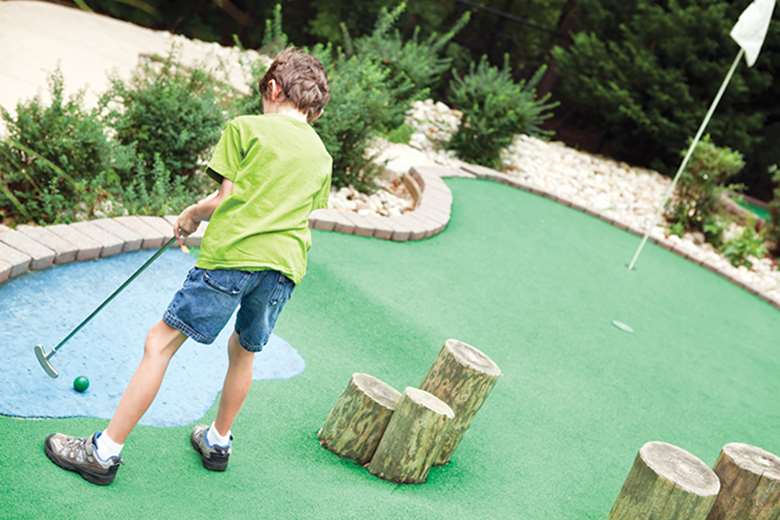Head, Heart, Hands - Aberlour Fostering
Gabriella Jozwiak
Tuesday, March 14, 2017
Head, Heart, Hands was a UK-wide, three-year programme that aimed to improve foster care by enabling seven fostering organisations to explore a social pedagogy approach.

- Following the project, charity Aberlour reported higher confidence among carers, a less hierarchical approach to children, and the creation of a clearer operational model
- Aberlour has now embedded the approach in its practice and continues to train foster carers in the method
ACTION
Scottish children's charity Aberlour had already followed a social pedagogy approach in its fostering work for four years, when it decided to build on its experience by taking part in a national social pedagogy programme.
Led by charity The Fostering Network, Head, Heart, Hands saw seven fostering organisations handed funding in 2013 to cover part of the cost of employing two full-time social pedagogues for three years. Over that time, they explored the concept by training staff and carers in the approach, which emphasises reflective practice, that adults and children work alongside each other, and that risk be managed in a way that encourages children to learn.
Based in Kirkcaldy, Aberlour fostering department is a small operation of five staff managing just 18 full-time placements. It receives referrals from all Scottish local authorities for children aged from four to 18. As fostering co-ordinator, Nicola Fearon says the charity is often a last resort for hard-to-place children who have experienced multiple placements. "One boy we placed had moved 10 times in six months," she says. "He's been with our carers for eight years now without any movement."
During the programme, the charity hired one full-time pedagogue, because of its size. The pedagogue trained all of Aberlour's existing foster carers. The charity also extended training for new foster carers by adding a social pedagogy day onto the three-day national foster care course, Skills to Foster.
This course aimed to take foster carers out of their comfort zone. Examples of activities include a "cup dance" where carers make moves with a cup. When they pass the cup to the next person, they must mimic the rhythm. Fearon says this helps carers learn they have to ask for help. Subsequently, they discuss the exercise, how it made them feel, and how that relates to a child's feelings. This encourages reflective practice.
"Can you remember how you felt when you were panicking because you couldn't do it?" is a common question Fearon asks carers. "That's how the children feel the majority of the time, even after years of living with you."
Aberlour also organised joint activities for staff, foster carers and their children. These were "common third" activities - a concept central to social pedagogy that emphasises the need for a child and carer to develop new skills together. "It could be as easy as icing a cake," explains Fearon. "It takes away the hierarchical system." One such activity was a trip to a crazy golf course, where Fearon says the children enjoyed being good at a game in which some Aberlour staff struggled.
Aberlour also encouraged carers to become "risk positive". They trained them to consider the learning benefits of potentially risky activities. Fearon gives the example of a child who will not wear their coat on a cold day. "The foster carer stands for three hours arguing with them and they don't even get out the door," she says. "If you let the child go out and become cold, there's a good chance the next time the child will want to put a coat on."
Since completing the trial, an Aberlour staff member now leads on social pedagogy workshops and reflection groups. It is retaining the day of social pedagogy training for new carers as part of its Skills to Foster course. It is also paying external trainers to deliver four workshops a year for carers.
"We're trying to keep it alive," says Fearon.
IMPACT
Fearon says the trial raised confidence among Aberlour's carers. One 65-year-old carer reported a marked difference. "He thought he knew how to care, but it changed his perceptions," says Fearon. "It wasn't about telling a child what to do. You work alongside the child and learn with them." She says carers find assessments easier as they are better at reflecting on their care, and that carers and social workers now speak a "shared language".
However, she is unable to comment on the impact the approach had on children. As the service already followed relationships-based practice, she says social pedagogy did not introduce dramatic changes, "but it gave us a clearer model."
An evaluation of the entire Head, Heart, Hands programme published by Loughborough University and the Colebrooke Centre for Evidence and Implementation showed almost a third of the carers said the common third approach encouraged them to reconsider how they used everyday activities to develop relationships with fostered children.
Overall, only three out of 57 foster carers interviewed reported that the programme had not impacted on their practice in any way.
However, the evaluation was unable to demonstrate benefits to foster children, as the placements made over the trial period differed and were difficult to compare. It also could not suggest the approach delivered value for money, as outcomes were hard to measure, but it suggested a unit cost for the programme ranged from £1,919 to £3,012 a year per fostering household.
Fearon says the fact thatAberlour's team is small, unlike those of local authorities, enabled them to afford and achieve the approach.
This article is part of CYP Now's special report on foster care. Click here for more




